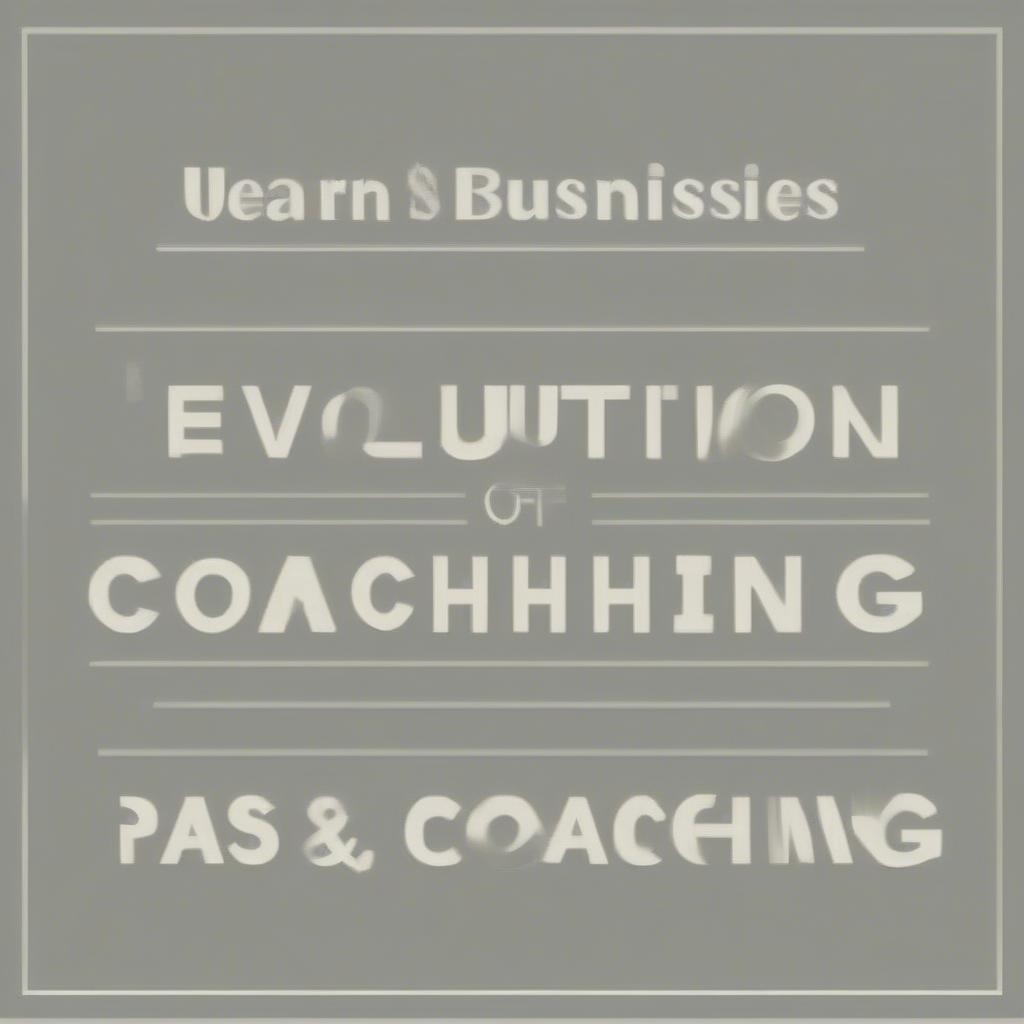
How to Use Workshops to Attract Coaching Clients
Why Workshops are a Goldmine for Attracting Coaching Clients
Let’s be honest. As a coach, you’re not just offering a service; you’re offering transformation. But how do you showcase that value to potential clients who might be hesitant to jump straight into one-on-one coaching? This is where the magic of workshops comes in. They’re more than just group sessions; they are powerful tools for client attraction, allowing you to:
- Demonstrate Your Expertise: Workshops give you a platform to showcase your coaching skills in action. You get to teach, facilitate, and guide, proving you know your stuff and that you can deliver results.
- Build Trust and Connection: Unlike a sales pitch, workshops allow people to experience your coaching style firsthand. This fosters a deeper connection and builds trust that goes beyond just words on a website.
- Attract Your Ideal Clients: By designing a workshop focused on a specific problem, you’re naturally drawing in individuals who are actively seeking solutions in your niche. They self-select as interested and are more likely to become paying clients.
- Generate Leads Organically: Workshops act as a magnet, drawing in potential clients you might not have reached otherwise. They can be promoted through social media, email lists, or even word-of-mouth, creating a continuous flow of new leads.
- Create a Low-Risk Entry Point: For someone uncertain about committing to a full coaching program, a workshop offers a more affordable and less daunting way to get a taste of what you offer.
- Increase Engagement: Workshops foster interaction and participation, creating a dynamic learning environment. This level of engagement is far more powerful than passive content and helps your audience remember you and your message.
In short, workshops are not just about teaching; they are about building relationships, showing your value, and attracting the right clients for your coaching practice. They offer a dynamic space for client attraction and nurture, making it easier for individuals to take the next step in their transformation journey with you.
Defining Your Perfect Coaching Workshop: A Step-by-Step Guide
Before you dive into creating a workshop, it’s crucial to get clear on your goals and your audience. This foundation will ensure that your workshop resonates and attracts the right kind of clients. Here’s how to define your perfect coaching workshop:
1. Identify Your Ideal Client’s Biggest Pain Point
- Deep Dive into Your Niche: What specific challenges do your target clients face? What keeps them up at night?
- Survey Your Audience: Use surveys or polls to gather real insights into their needs and desires. What are their biggest struggles? Where are they seeking solutions?
- Analyze Your Coaching Sessions: Reflect on your previous client interactions. What themes or patterns emerge? What problems do they frequently seek your help with?
- Focus on Specificity: Instead of “better productivity,” think “conquering procrastination for entrepreneurs.” Specificity will attract the people facing that exact problem.
2. Craft a Compelling Workshop Title and Description
- Benefit-Driven: Instead of focusing on what the workshop is, focus on what participants will achieve.
- Keyword Rich: Use keywords that potential clients might be searching for. For example, if your workshop focuses on boosting confidence, include keywords like “confidence building” or “overcoming self-doubt.”
- Clear and Concise: The title and description should immediately convey the workshop’s purpose and value. Avoid jargon or technical terms that could confuse your audience.
- Action-Oriented Language: Use verbs that inspire action and participation. For example: “Master,” “Unlock,” “Transform,” “Boost,” etc.
- Examples: Instead of “Time Management Workshop,” use “Time Mastery for Busy Professionals: Stop Overwhelm & Achieve Your Goals” or “Boost Your Confidence in 3 Days: A Practical Workshop for Introverts.”
3. Design a Value-Packed Curriculum
- Start with a Problem: Clearly identify the core issue you’ll be addressing.
- Provide Actionable Solutions: Focus on practical strategies and tools that attendees can implement immediately.
- Include Exercises and Activities: Make your workshop interactive and engaging. Don’t just talk at them; get them involved.
- Offer a Clear Roadmap: Structure your workshop with a logical flow, making it easy for participants to follow along and feel like they’re making progress.
- Keep it Concise: Don’t try to cover too much in one workshop. It’s better to cover a few key topics thoroughly than to rush through a vast amount of information.
4. Determine Your Workshop Format and Delivery Method
- In-Person vs. Online: Consider your resources and audience. In-person workshops can foster more direct interaction, while online workshops are more convenient and accessible.
- Live vs. Pre-recorded: Live workshops allow for real-time interaction and Q&A, while pre-recorded workshops offer more flexibility and can be reused.
- Duration: Decide on the optimal length for your workshop. Shorter workshops can be easier for attendees to commit to, while longer workshops allow for deeper learning and transformation.
5. Set a Fair Price and Clear Value Proposition
- Research the Market: Look at similar workshops to see what others are charging.
- Highlight the Value: Emphasize what attendees will gain from the workshop, not just what it costs. Focus on the transformation they will experience.
- Consider Different Tiers: Offer different pricing options for extended support or additional resources. This can cater to a broader range of needs and budgets.
By following these steps, you’ll create a workshop that resonates with your ideal clients, providing immense value and setting the stage for future coaching relationships. You want to leave participants feeling empowered and motivated, eager to work with you further.
Maximizing Workshop Engagement: Strategies for a Memorable Experience
A successful workshop isn’t just about delivering information; it’s about creating an engaging, interactive experience that leaves participants feeling inspired and connected. This level of engagement is what will attract them to your coaching services. Here are some powerful strategies to maximize engagement:
1. Start with a Compelling Hook
- Engage Emotionally: Tap into the feelings and desires of your audience with an anecdote, thought-provoking question, or relatable story.
- Clearly State the Benefits: Immediately show them what they will gain by participating.
- Set the Stage for Transformation: Convey the impact this workshop will have on their lives.
- Use an Icebreaker: Get people talking and interacting early on to create a welcoming and inclusive environment.
2. Foster Interaction and Participation
- Use Polls and Quizzes: Keep participants actively engaged by posing questions and getting their input.
- Breakout Rooms for Small Group Discussions: Allow attendees to share experiences and learn from one another in a more intimate setting.
- Q&A Sessions: Create opportunities for participants to ask questions and get personalized feedback.
- Real-time Chat: Use a chat feature to encourage questions and comments throughout the workshop.
- Interactive Exercises: Incorporate activities that allow participants to practice what they are learning and apply it to their own situations.
- Share Personal Experiences: Share relevant stories from your own journey, making yourself relatable and approachable.
3. Create a Collaborative Learning Environment
- Encourage Sharing: Foster a space where participants feel safe sharing their thoughts, ideas, and experiences.
- Build Community: Use icebreaker activities, group discussions, and feedback loops to create a sense of connection among participants.
- Highlight Successes: Acknowledge and celebrate the progress of participants to build confidence and motivation.
4. Use Visual Aids and Multimedia
- Slides and Graphics: Use visually engaging slides to support your presentation.
- Videos: Incorporate short videos to illustrate key concepts or add a dynamic element to the workshop.
- Real-Life Examples: Use case studies or real-life examples to make your content relatable and engaging.
5. Provide Actionable Resources and Templates
- Worksheets and Checklists: Provide practical tools and resources that attendees can use to apply what they’ve learned.
- Templates: Offer templates they can use to implement specific strategies or plans.
- Follow-Up Materials: Share additional resources and materials after the workshop to continue the learning process.
By implementing these engagement strategies, you’ll create a workshop that is not only informative but also incredibly engaging and impactful. This experience will leave a lasting impression on participants, making them more likely to see you as the ideal coach for their journey.
Promoting Your Workshop Effectively: Reaching Your Target Audience
Once you’ve created an amazing workshop, it’s crucial to get the word out to the right people. Effective promotion is key to client attraction and ensuring you reach your target audience. Here are some practical strategies:
1. Leverage Your Existing Network
- Email List: Send targeted emails to your subscribers announcing your workshop.
- Social Media: Share engaging posts on your social media channels, highlighting the value of the workshop.
- Website: Create a dedicated landing page for your workshop with clear information and a call-to-action button.
- Referrals: Encourage past clients or colleagues to share your workshop with their network.
2. Explore Paid Advertising
- Social Media Ads: Target your ads to people who fit your ideal client profile.
- Google Ads: Use relevant keywords to reach people actively searching for solutions to their problems.
3. Partner with Complementary Businesses or Influencers
- Joint Promotions: Collaborate with businesses or influencers that share a similar audience to reach a broader audience.
- Guest Posts: Write guest posts for relevant blogs or websites to promote your workshop.
- Affiliate Marketing: Offer a commission to others who promote your workshop to their audience.
4. Create Engaging Content
- Blog Posts: Write articles on topics related to your workshop to drive traffic to your website.
- Videos: Create short videos that highlight the benefits of attending your workshop.
- Podcasts: Promote your workshop on relevant podcasts.
- Infographics: Share visually appealing infographics that showcase the key takeaways of your workshop.
5. Offer Early Bird Discounts and Incentives
- Limited Time Offers: Create urgency by offering discounts for early sign-ups.
- Bonus Content: Provide additional resources or materials for those who register early.
6. Host Free Webinars or Introductory Sessions
- Tease the Workshop: Give potential attendees a taste of what they can expect in your full workshop.
- Address Objections: Answer any questions they might have and demonstrate your expertise.
By implementing these promotion strategies, you’ll reach a wider audience and attract more participants to your workshop. Remember, consistency and persistence are key to building momentum and generating leads for your coaching business.
From Workshop to Client: The Seamless Transition
The ultimate goal of your workshop is to attract clients for your coaching services. Here’s how to smoothly transition participants from workshop attendees to paying coaching clients:
1. Demonstrate Your Coaching Skills Throughout the Workshop
- Personalized Guidance: Offer tailored feedback and suggestions to participants based on their specific needs.
- Ask Powerful Questions: Use coaching-style questions to encourage reflection and self-awareness.
- Active Listening: Show genuine interest in the challenges and experiences of your attendees.
2. Clearly Explain Your Coaching Programs
- Highlight the Benefits: Clearly communicate how your coaching programs can further help attendees achieve their goals.
- Provide Options: Offer different coaching packages to suit various needs and budgets.
- Offer a Clear Call-to-Action: Make it easy for participants to take the next step and book a discovery call or consultation.
3. Provide a Special Offer to Workshop Attendees
- Discounted Packages: Offer a special rate on your coaching programs for those who attended your workshop.
- Bonus Sessions: Provide additional coaching sessions or resources for workshop participants who sign up for your programs.
- Priority Scheduling: Give workshop attendees priority access to your coaching schedule.
4. Follow-Up and Nurture Your Leads
- Send Thank You Emails: Express your gratitude for their participation and remind them of the value they received.
- Share Additional Resources: Provide follow-up materials and resources to keep them engaged.
- Stay in Touch: Send regular newsletters or emails with valuable content and offers to stay top-of-mind.
5. Gather Feedback and Testimonials
- Surveys and Feedback Forms: Ask participants about their experience and how they feel you could improve.
- Testimonials: Request testimonials from satisfied attendees to use in your marketing materials.
By implementing these strategies, you’ll create a seamless transition from workshop to coaching, maximizing the potential of converting workshop attendees into paying clients.
Learn Business and Your Coaching Growth
At Learn Business, we understand the unique challenges and opportunities faced by coaches. We’re committed to supporting you on your journey to business success by providing the tools, guidance, and templates you need to grow and thrive. We can help you with:
- Tailored Templates: We offer a library of customizable templates for creating your workshop materials, marketing materials, and even your client onboarding process. These templates are designed with both functionality and aesthetics in mind, saving you valuable time and effort.
- Strategic Guidance: We provide expert advice on developing your coaching brand, attracting your ideal clients, and crafting a sustainable business model.
- Marketing Support: We can help you create effective marketing strategies that will attract more leads and grow your online visibility.
- Business Development: Learn Business offers resources and support to help you create a clear plan for your coaching business to thrive by developing strategies that will help your business continue to grow.
We recognize that every coaching business is different, and we strive to offer personalized support to meet your specific needs. When you partner with Learn Business, you gain access to a wealth of expertise and resources that will help you accelerate your growth and achieve your business goals.
Conclusion: Workshops – Your Secret Weapon for Client Attraction
Workshops are an incredibly powerful tool for client attraction for coaches. They provide a low-risk, engaging opportunity for potential clients to experience your coaching style and see the value you bring. By designing targeted workshops, maximizing engagement strategies, promoting them effectively, and providing a seamless transition to coaching, you can build a thriving coaching business and help more people achieve their goals. Start small, experiment, and constantly learn. The journey of using workshops to attract clients is a dynamic one, and each workshop you conduct will give you a clearer understanding of your ideal clients, their needs, and how you can best serve them. Remember, coaching is about transformation. And workshops are the perfect stage to show the world the impact you can have.



Leave a Reply